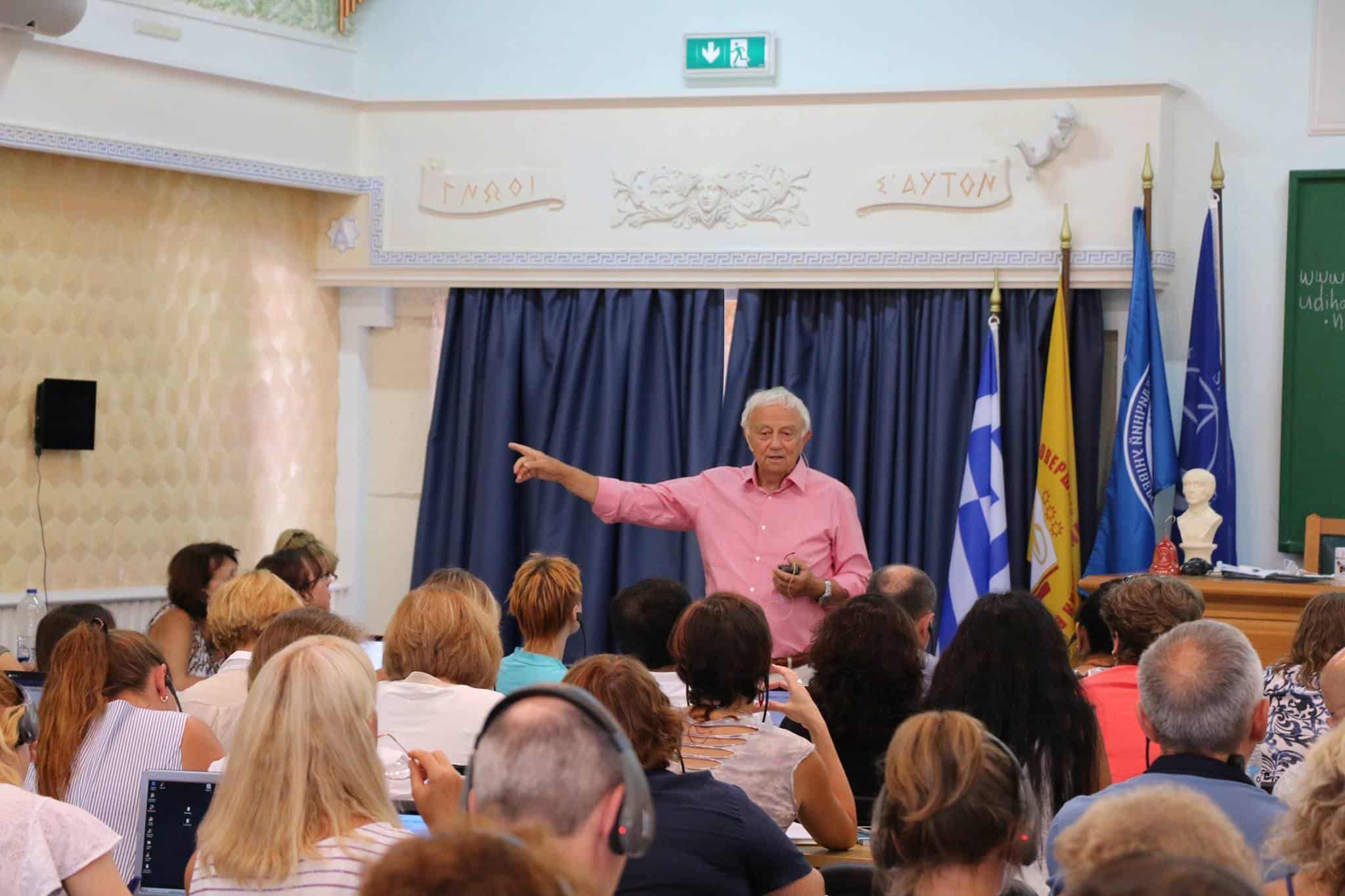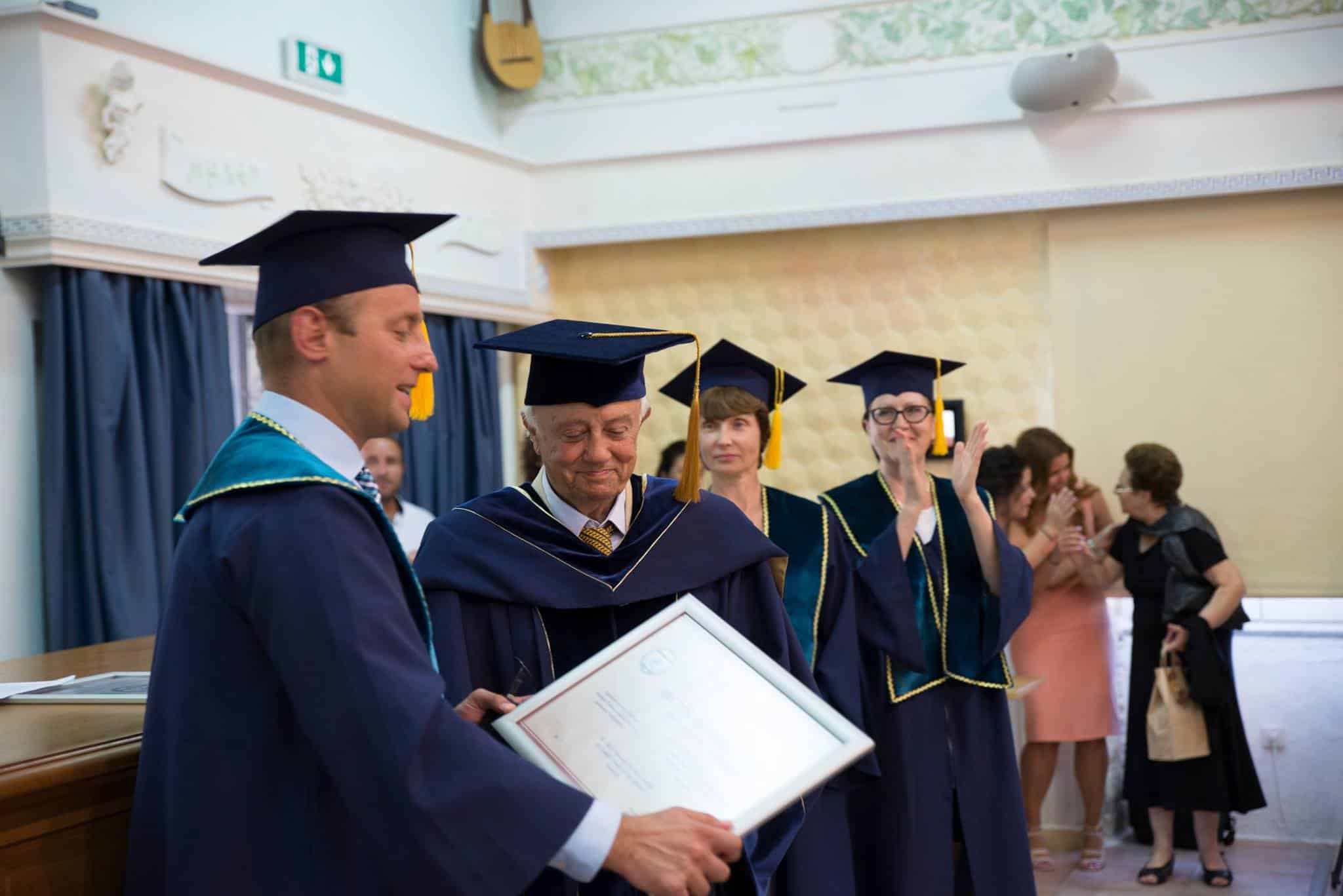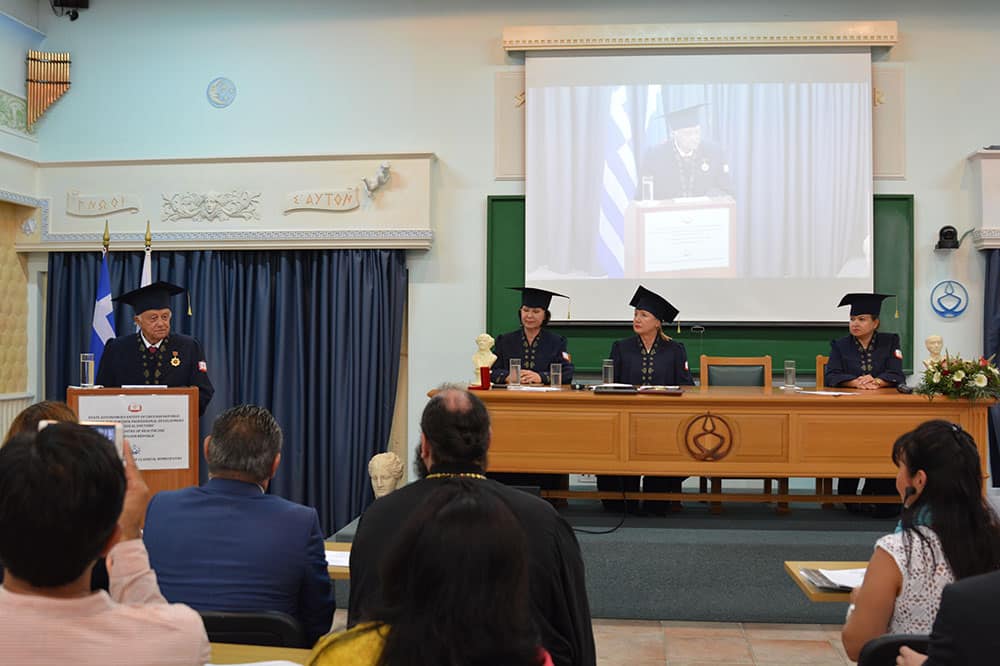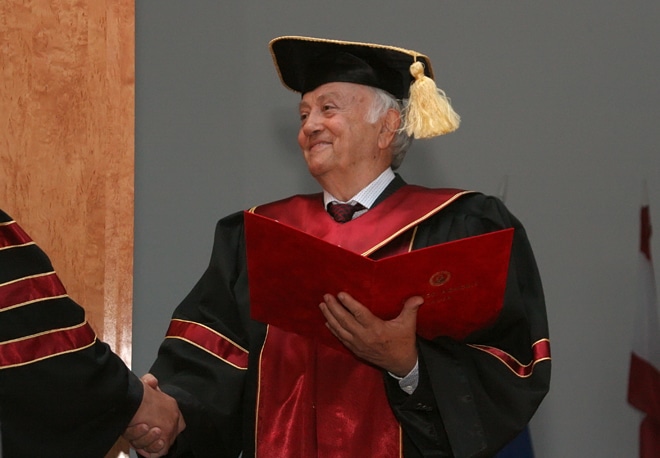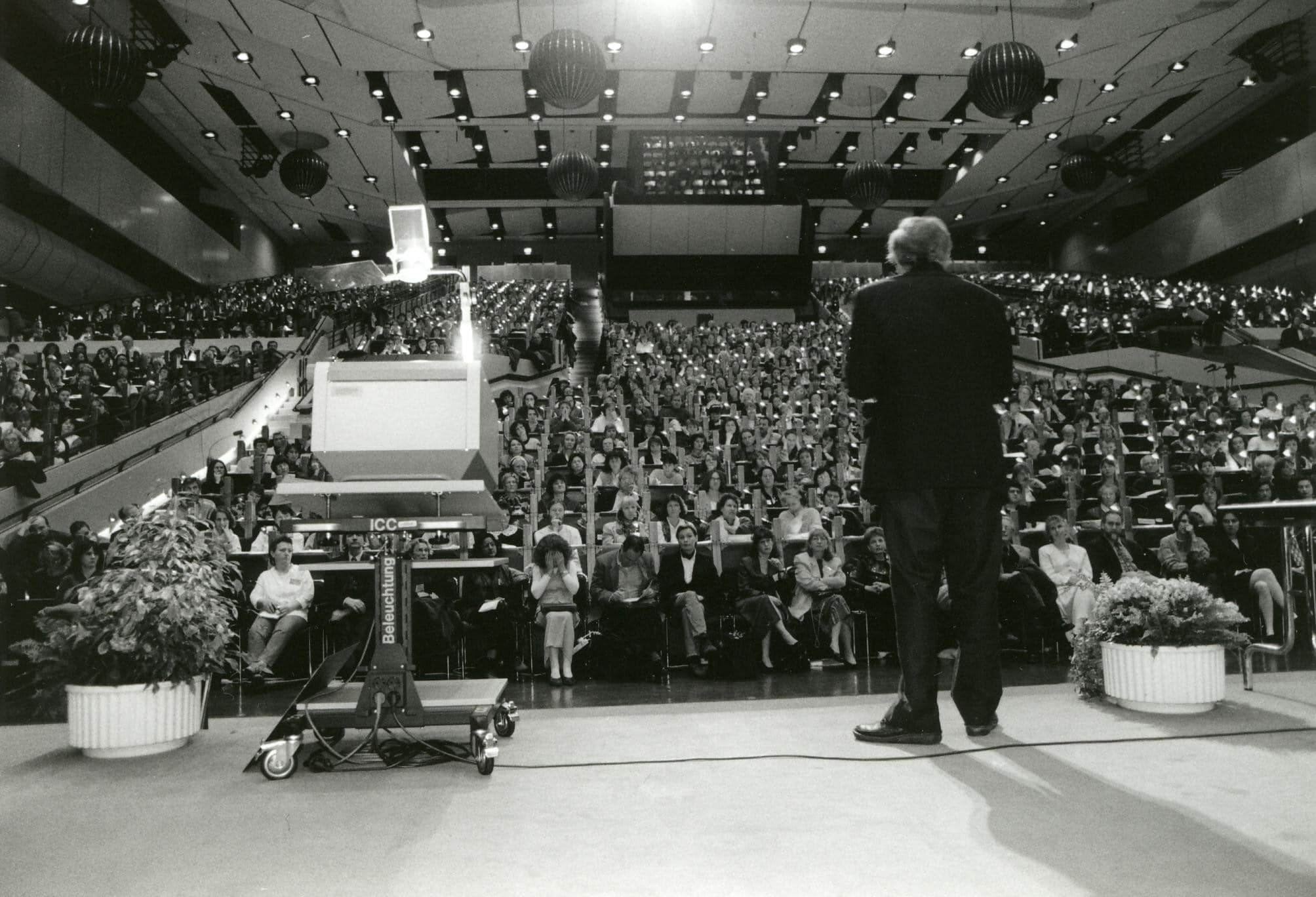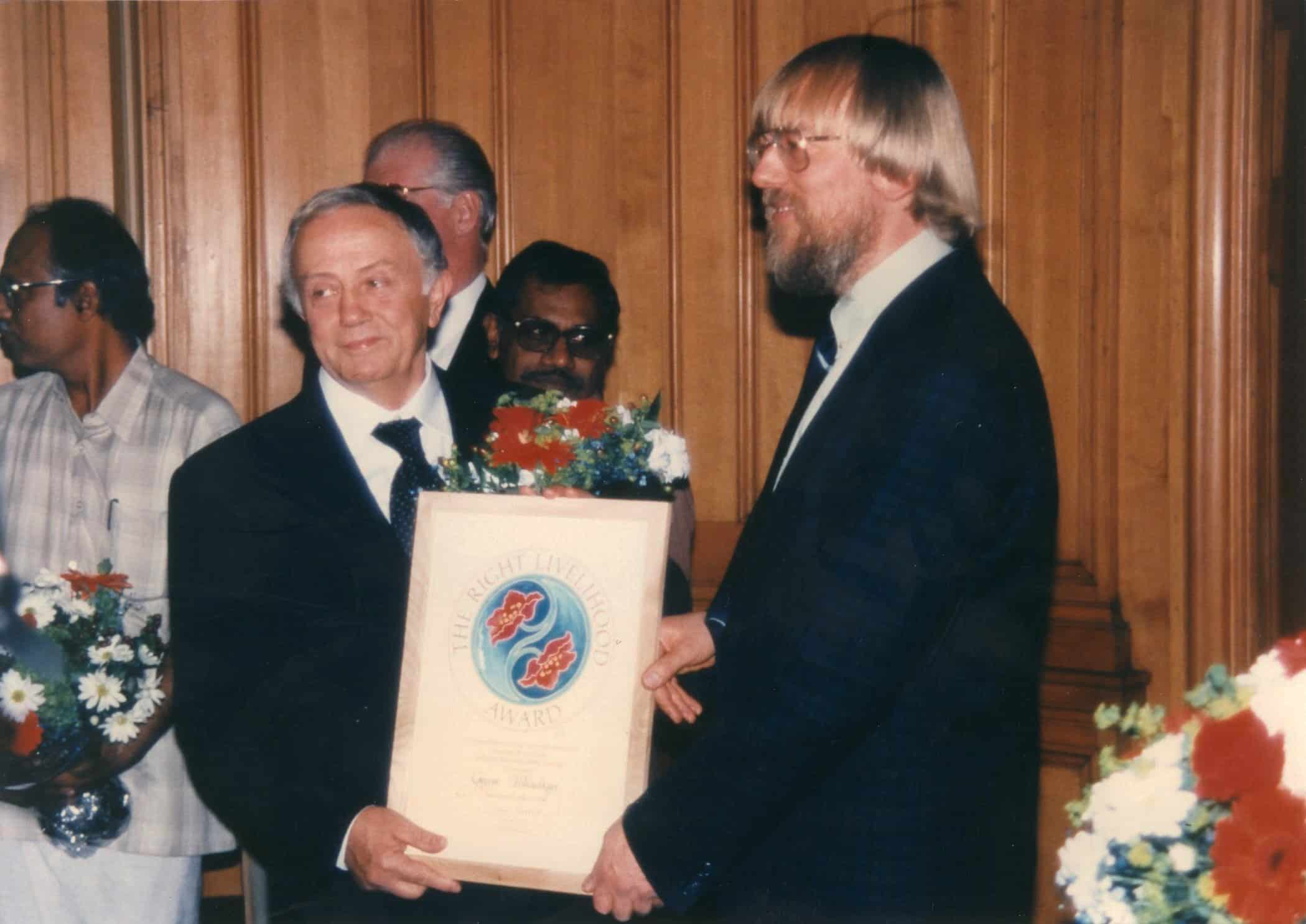On September 8th, 1984, he addressed a large and enthusiastic audience in Central Hall, Westminster: the following is the edited text of his address.
The Editor extends grateful thanks to George Vithoulkas and The Academy of Classical Homoeopathy, and to The Society of Homoeopaths who arranged the event, for making it possible to present this article in our journal.
Homoeopathy, Health and Humanity
Radionic Quarterly
December 1984
HOMOEOPATHY, HEALTH AND HUMANITY
by Prof. George Vithoulkas
George Vithoulkas is Founder-President of The International Foundation of Homoeopathy
His books, The Science of Homoeopathy and Homoeopathy: Medicine of the
New Man have been widely read in the U.S.A. and the U. K.
On September 8th, 1984, he addressed a large and enthusiastic audience in Central Hall, Westminster: the following is the edited text of his address.
The Editor extends grateful thanks to George Vithoulkas and The Academy of Classical Homoeopathy, and to The Society of Homoeopaths who arranged the event, for making it possible to present this article in our journal.
It is a very great pleasure for me to address you tonight and I also feel that it is a special moment —a moment in the development of the Homoeopathic movement which is very important for the whole world. I don’t think that a few years ago, if anybody had been here to speak about Homoeopathy it would have collected as many people as tonight. That’s a sign that the time is now for Homoeopathy.
Tonight I have come to share with you some of my experiences concerning human health in general —I must say, it’s not very optimistic! We are living in a time when there is a lot of excitement and great technological progress that promises to
give us a lot — and to give us the possibility to live in abundance and happiness. Well, my concern is that it is doubtful whether or not mankind will, in the course of a few decades, possess an adequate state of health to fully enjoy the fruits of our technological progress.
Why do I say that? Many of you may know that I have been directing a clinic in Athens where about thirty medical doctors are practising full-time and in which we see about 2,000 patients every month. We don’t see these patients casually, we take a full history of their medical background, medical past, and we watch them as we treat them all along the years. Having attended all these thousands of cases, and having seen how they react to different ways of treatment, I have come to the conclusion that the human health in general is in great hazard—it is in great danger. My conclusion is that the health of the human race is rapidly degenerating.
Ten years ago, during several of my lectures at the Athenean School of Homoeopathic Medicine, I suggested as a consequence of my convictions, that soon the human organism would develop a susceptibility to previously unrecognised virulent infectious agents. In less than ten years, this prediction has regrettably begun to be realised: Legionaires’ Disease, and a host of other new infectious diseases. We have the recent breaking out of the disease, that I believe everybody here knows, called AIDS — an acquired deficiency of the immune system. All these new diseases are breaking out. Which means that the human body is opening up, exposing itself, to nosological agents that were unknown before. They were there, but the human body had a protection and now this protection has been broken down. These new susceptibilities to infectious agents are, however, only the tip of the iceberg. The deterioration of the collective health of mankind is far more pervasive than this, and is reflected most dramatically in the relentless progression of chronic diseases. These chronic diseases affect tens of millions of people and the incidence steadily increases, even among our juvenile population. Diseases such as rheumatoid arthritis, osteo-arthritis, cancer, epilepsy, heart diseases, allergic conditions, bronchial asthma, multiple sclerosis and other neuro-muscular diseases, and serious chronic mental disorders are today alarmingly increasing. I would anticipate that were one to take a census, it would be discovered that nearly one-third of the entire population over 20 years of age, of our industrialised countries, are taking some kind of medicine for some chronic disturbance.
I’d just like to give you a few very quick numbers — statistics which come from the National Health Service of this country. The statistics say that malignant neoplasms — from 1961 to 1973, within twelve years — have increased almost 50%. Fifty per cent in ten years! — in a hundred years, what happens? The heart diseases have increased 54%; the nervous system diseases, 36%; circulatory system, 24%; musculoskeletal system, 36%. You see? All these diseases that I am referring to — they are serious chronic conditions — they have exploded! Gastro-intestinal conditions, gastroenteritis, gastritis — something which is not severe — has increased only 4%. That is the normal figure, if the general health of the human body was staying stable in a way, that 4% or 5%. It should be up or down — but all the figures are up and some figures are extremely high. Where are we going? These examples are illustrations of the undeniable truth that our society’s health is deteriorating and it is especially interesting to “know that the rising incidence of chronic disease and the appearance of new diseases is occurring primarily in the industrialised countries of the West which, paradoxically, provide the people with the greatest access to orthodox medical treatment. Thus one can arrive at one or both of two possible conclusions: that the overall health of the human population is deteriorating, either because of the employment of the allopathic therapeutics or in spite of its use.
Certainly there must be many factors accounting for the rise in chronic diseases, among them the increased stress of daily life in industrialised society, nutritional inadequacies in our diet, and the environmental toxins with which we have plagued ourselves. But it remains my contention nonetheless that our health is being compromised to a great extent by the widespread allopathic drugging, in effect.
Well, this is perhaps an assumption and perhaps something that you cannot take for granted so tonight I would like us together to go through certain concepts, I hope eventually to be able to show to you logically that what I have said so far is true.
To understand what is happening we have to understand what it is that we call a human organism. What is that which we call the human being? Is it the physical body? Is it only the cells? To my understanding the human being can be said to function on three different levels: on a mental level, on an emotional level, and on a physical level. Now immediately we have a different concept of the human being. Maybe the concept that the human being is just pieces of cells or flesh is not very valid any more in our understanding.
You may say ‘what is the mental level?’. It is very simple — it’s not philosophy. I will give you first a generic definition: the mental level is that part of us that registers alterations in our understanding or consciousness. The emotional part ? — that which registers alterations in emotions. I’ll give you very quickly certain functions of the mental level. You see the thinking process when we classify, when we criticise, compare. When we calculate, create or conceive ideas, when we synthesize these ideas, we are working primarily on a mental level. So there is a mental-spiritual part in the human body which can be said to function at a certain moment and the human being as a whole focusses its function on that level. Then there is the emotional level — what is it? What does it contain? All the degrees of emotions from love to hate, from joy to sadness, from calmness to anxiety, from trust to mistrust, from courage to fear, etc. You see, all these fine emotions are contained and are inter-playing in us — they are happening in the emotional level.
We cannot say “we do not have emotions, we only have cells”. We do not say “we do not have thinking, we only have cells”. So therefore we have parts which are functioning, which are existing and which are affected in our life — can be affected and can be unbalanced. The physical level of course is the physical body, but if you conceive that idea, that model I have given, then you will know what I am talking about.
The mental level is the most important level in the human being — that part of man that thinks, that identifies himself, that says “I am George” — is the most important. When I lose that, then insanity comes; then I don’t know myself, I don’t know others, I cannot synthesize, I cannot classify, I cannot think — I have been reduced into another kind of thing, I have lost everything. Well, compare that with a physical pain in the body — my liver is deteriorating, but still I can be creative, I can be thinking, I can be enjoying. Even when the liver is breaking down, or the heart is breaking down, it is not as important as when the mind is breaking down — and the suffering then is much more. Psychological pains are much, much more agonising that physical pains. Why? Because they are deeper in ourself. You see, you understand that this emotional level is more important than the physical, because when the emotions are dead, when the emotions are not alive, what do we feel inside? A feeling of deadness, complete stillness — like depression, sadness. We all have gone through sometimes stages of depression and we know how great is the suffering during this time. Most of us have gone through the pains of breaking our legs or hitting some part — this is nothing. I broke my leg and took one dose of Bryonia — it was 11 o’clock at night — at 11.301 was sleeping. I slept all through the night. But let me break my heart and see then if I can sleep through the night! Eh? “My girl-friend left me”, “My wife left me” — the Emotional starts vibrating badly and there is emotional pain. That’s much more important.
So, the emotional part is much more important than the physical. The mental is more important than the emotional. So the mental, emotional and physical levels are in hierarchical order; the mental is higher than the emotional and physical but these three levels are not separate — we are one human being.
The mental is the central part of the human being — it is the most protected also. It is very deep inside. The physical level is the peripheral; it is protecting the Emotional and it is protecting the Mental. So therefore we shall see that when diseases are progressing from the periphery, the Physical, to the Emotional, into the Mental, diseases are progressing towards a degeneration of the human being.
How do these levels interact? They are not separate. All these three levels are put together and they stay together through an agent — it is a kind of energy field which animates these three levels. We call this bio-energy — there are different names for this energy and in Homoeopathy we call it ‘Vital Force’: the Vital Force of the human body. The Vital Force is a field of energy within us which is responsible for receiving the stimulus of the outside and arranging for the response which is going to happen. I am feeling very cold so because I am feeling cold I must protect myself. This is not happening logically, this is happening on another level which we call the ‘energy field’ level. Therefore, there is a central intelligence which gives signals and says ‘OK, contract the vessels’ etc. This central intelligence will give directions so detailed, so minute, that all that which we call the physical body has to rearrange itself in order that we are protected from coldness, from being overheated. It’s the same thing when someone says “Your wife has broken her leg” — there is a shock. That shock is taken by this Vital Force and there is palpitation. Why is there palpitation? For this reason: because the blood must go the the brain, otherwise there would be fainting. The human body, at every moment, rearranges itself to protect itself from the environment and from the different stresses that exist in the environment. This may be a virus, a microbe, bacteria, psychological stress, and environmental stress, etc.
Not only are the three levels in hierarchical order but each level, mental, emotional and physical, have their own hierarchical order. This means that there are functions of the human mind which are of a higher order than others. We have the memory, a function of the mind which is of less importance than the capacity to think and synthesize’. Sometimes we lose our memory and say “I don’t remember very well” but this isn’t so very important. But you see a person who says “What do you say, I don’t understand, what?” who can’t think anymore — he’s in a different state of mind from one who says “I forgot, what is this word?”. We don’t pay such attention to the second state, but to the first we say that something serious is happening to the person. That means that some functions of the human mind are more serious, more important than others. It is the same with the human body — make a cut in your skin with a knife — this is the outer periphery. Is this important? Not at all. Go inside into a more vital organ and make the same cut — much more important! In the larynx, important; in the liver even more; in the heart, maybe it’s fatal. So there is a hierarchy, you see? The skin does not have the same importance as the brain. So in the organs of the body there is also a hierarchy.
Well, so if we then see diseases progressing from the periphery to the centre, there we should question what we have done to that individual as physicians. Orthodox medicine does not concern itself with such details. You go there with a swollen knee, they say “this is arthritis — take some anti-inflammatory drugs and the inflammation will go away”. So you take these drugs for a month or two and the inflammation goes away. After six months you realise that something is not going well in your organism and you eventually develop a more serious condition, like a systemic disease. We do not connect these two, but the question is, is there any connection really? That means, by taking drugs for different ailments, do we drive the diseases more and more to the centre? Do we drive the diseases from the periphery to the central nervous system? Do we drive diseases to the emotional level where we have the anxieties and the phobias that we see today? The neurosis which is going on around us? Do we drive inside the disease where we see insanity, where we see the mental disorders that prevail at this time in our societies? The human organism tries to confine disease as far from the centre as possible but if we bombard the organism with chemicals, with wrong kinds of treatment, then that is going to break down the defences. They will give up and receive the disturbance deeper and deeper. Break down the defences, which is — according to the allopathic system of understanding — the main tool of the human organism that defends itself, the immune system. And what do we have today? An acquired deficiency of the immune system — AIDS. Why AIDS? This is very important — you have to understand. The statistics say that those people who are mostly getting this disease are those homosexuals — not only homosexuals — who have been exposed again and again to venereal diseases, syphillis and gonorrhoea, and have been receiving repeated and long treatments with anti-biotics. Can you understand now what is happening?
AIDS — an acquired deficiency of the immune system. It’s beautifully said: ‘acquired’! It’s not congenital, it’s acquired. But very soon I can predict — and they can write it . . . that this is going to be congenital. Why? Because the people will have brought their immune system — their defences — to that state where they will bear children and the children will be born with that congenital weakness already. And so we go on happily living in this world, exposing ourselves more and more to new diseases, to virulent diseases we don’t know. You see, at this moment our defences defend micro-organisms that exist already here, tonight — but they defend nicely, we don’t understand anything about that. Break down the defences and then we shall realise that even micro-organisms which are normally living in the human body become virulent and aggressive agents for that human body.
… I was just reading an article three days ago . . where according to researchers they have found out that even innocent inhabitants of the intestines have of late become virulent pathogenic agents. Why? Something we have done to our systems, to our defences, to bring it down to a state where that which was innocent before now becomes violent. If we understand this point of view really then naturally we have to ask ourselves “where are we going?”
What I’m telling you are just logical commonsense things. You see, orthodox medicine views and continues to view the human body as merely a physical, a bio-chemical entity: a highly integrated system of bio-chemical reactions and cellular components. From its perspective, the cure of disease involves only a re-establishing of biochemical normality and cellular integrity. It attempts to effect cure by the administration of chemical agents whose action is directed towards the isolated focus of pathology. I’d like you tonight to just take these questions with you and think for yourself. The whole concept of allopathic medicine is that we find the chemical agent that will correct or will kill the virus or bacteria. But a system of medicine also is evaluated on what as a whole it does to the human body, the human organism. Then only we can evaluate the value of a system.
In order to understand what a system of therapy has done to the body, we have to understand first what? We have to understand the idealistic state of health — what ideally would have been a state of health. If we define that, then we as therapists apply some kind of therapy on the human individual and having that as a guide, that ideal definition, we always ask ourself “did I take this man closer to this ideal of health, or did I take him further from it?” Therefore, there is a need to define ‘what is health?’
I did not define health just because I liked it but because I had great concern — “what have I done?”. Every time I would give a remedy some reactions would take place and I wanted to know exactly what I had done. Eventually I concluded to a certain definition of health which looks idealistic and nobody can ever attain, but it is a signpost towards which the human health as a whole should go. If we find a system that takes the human health from that point where it is and brings it closer to that definition, then that is the one which we should apply and we should support and accept for ourselves. Through my reasonings, I am just going to give you quickly my definition of health.
Because of the three levels, we have to have a definition of health for each level. I have found that a word expresses most beautifully the state of health — that word is freedom. Freedom from pain — on the physical level. If I do not have any pain does that mean that I am healthy? No, not yet, because maybe I won’t have any pain but I may feel rotten, tired. So therefore freedom from pain, and having as a state a state of wellbeing — you all understand that state; “I have this feeling in my physical body of wellbeing and I am free from pain” — at the physical level then, I am healthy.
But emotionally, maybe there’s something going on which shows unhealthiness — therefore I have found out that a man or woman who is healthy on the emotional level should have freedom from passion. By passion, I mean only these intense feelings that overtake us and might make us slaves. I do not mean the normal passion I have for my work but even that, if it has made me a slave, then something is not right in my emotional level because I have to depend. For example, “I love my wife” — love your wife, yes, no objection, but if you are attached to her, if you cannot leave, if you have become a slave to your wife, or to your husband, then something is not healthy. The fanatics, they have passion you know: “Liberate the Communists, liberate the world”, you hear them. If that goes too far, you know the fanatic will say “Kill him” — and he will kill him. Is that health? We are talking about ideally now. So therefore everybody who is overtaken by a passion and the passion makes him a slave, he cannot have anymore the freedom to choose — then he’s not healthy. So, freedom from passion — just like that it doesn’t say anything, it has to be a state inside us. What is this state? A state of dynamic calmness — a dynamic calmness, never mind what happens outwardly — the healthy man on the emotional level . . .
Then, well this is the most difficult one — which is the definition of health on the mental level — and you will all see why. We are all seeking this — the person who is really healthy on the mental level is the one who has freedom from selfishness — freedom from egotism. The egotistical person is a very sick person. Why? because he is a slave to his selfishness — “I want this, I want that, I am the biggest …” You hear him and you think “Well, he’s nuts!” [laughter] But here he is, he thinks he is the biggest, the greatest, etc. A man who really attains that state, who is really free from his egotistical elements, is a humble man, of course, and then the state of mind is a state of great clarity and great connection with that which we call ‘objective truth’. You may call it cosmic energy, cosmic force, you may say it’s God, or whatever. The man who has reduced his selfishness, his egotistical element is allowed to connect himself with the Divine and receive ideas — the mind becomes very clear. Now who is really free on that level?
With these ideas in mind now, we are in a better position to evaluate a therapeutic system. Now: “I went to my doctor with a duodenal ulcer, with my pains here in the stomach, he gave me different remedies and the pains went away, but now I live in a state of anxiety” — that treatment maybe wasn’t right because from the physical level it has gone to the mental, emotional level; anxiety has arisen. Now: “I brought my leg to the orthopaedist. He gave me treatment for my leg but now I have pains in my stomach and I have developed a duodenal ulcer” — from the leg to the stomach. The stomach is more important than the arthritis of the leg. Therefore the treatment may not be good. You see, now we have signposts to evaluate each kind of treatment we are taking.
Let us go on to another concept now. What is disease? The symptoms which we call disease are nothing else but a reaction of our organism to a stressful agent. An agent can be stressing on any level, mental, emotional or physical. Now if there is a virus on the physical level, then the stress goes to the vital force and the vital force rearranges the defence. It says “In order to defeat this virus I shall raise the temperature”. There is a fever and with this there may be some anxiety on the emotional level and the fever state brings some dullness of the mental level. So maybe the vital force decides to react on three levels. So a disease is not as we have learnt to say “is it bronchitis?” Bronchitis is a group of symptoms — which is fever, which has coughing, which has a collection of mucus in the bronchii — all this symptomatology we call ‘bronchitis’. But this is nothing else but the reaction to the disease, it is not the disease per se. What we perceive actually in disease is the reaction of the body in order to save itself. It raises the fever because if it does not it will not be able to counteract the virus or the microbes or the bacteria. It is necessary. So we cannot say “bring down the fever” logically, because this may be dangerous. Yet this is the prevailing system of medicine and has been for all these years. Any symptom which you see is a reaction of the defence mechanism in order to bring about a balance. I will give you an example — you have headaches. Every few days you get a headache in the right frontal area. It is so painful. You go to bed and say “Ugh! I have all the symptomatology of migraine, why is this useful for me?”. It is useful because in the state of imbalance in which your system is, this is the best possible reaction. If you counteract this, if the organism cannot bring out with this spasm of the arteries, if we loosen this up in some way, maybe we shall have something happening which is going to be much more serious — like a brain episode. So therefore, at any moment, every symptom which is happening in our body is a useful symptom for the state in which we are.
Unless we bring ourselves to a better state of balance, this symptomatology will not go away. Taking a pain-killer doesn’t solve any problem.
Fortunately, we now have this homoeopathic system of medicine which does what? It takes the symptomatology down — writes down all the symptoms we have — of the human being. Then it says “I respect very much how your organism tries to bring about the balance in you, so I will try to go together with that force, not against it, by giving you a medicine that I know has produced and imitated your symptomatology.” So, if I give you a remedy which has imitated your symptomatology what I shall do is augment, make more intense, the symptoms which you have already. Therefore I am helping your defences. How? By giving you a medicine which, because it is potentised, because it has been processed, as it were, on an energy level, it’s going to affect the vital force, the energy field of the body. This is the new idea which brings about homoeopathy. Homoeopathy is the medicine of another level, the medicine of the energy levels, the energy fields of the body. Homoeopathy deals with minute energies and stimulates the defences of the body through energised medicines, by paying great attention to what the organism is doing and trying to help the organism in the process of self-cure.
Commonsense says that if allopathic medicine was successful in treating diseases, chronic diseases, we would have witnessed a regeneration of the human race — a regeneration, not a degeneration. The statistics would show less and less chronic diseases. We are aiming at this moment to produce enough homoeopathic physicians that will be able to intelligently use these energised medicines in order to bring about a kind of regeneration of the human health again. Many of you may have experienced the regeneration brought about by a homoeopathic remedy and therefore, you know from experience that what I say is true. But here, we are very few compared with the vast majority of people who don’t know anything about homoeopathy. They do not know anything about the possibility of using this alternative. So we must do something. I feel that it is our duty, not only my duty. You may say “Let George do it!” [laughter] No! You and everybody who knows about that truth must do it. Somebody will do a little, somebody will do more, but unless everybody does something for homoeopathy, at this moment, today, do not expect to see any reverse process of what’s happening. Statistics will show more and more degeneration, more diseases, new diseases and the human suffering is going to grow and grow. It is the responsibility of everybody who is here today to take some action. Never mind what it is, just tell your neighbour. Just give information, ask “Why do you take so many medicines?” The cost — the cost of health care — from that you can see the ingestion of tons of medicines that are pouring into the human organism as a whole — especially in the West. The statistics — 50 per cent more, 60 per cent more — God knows what we are going to see very soon.
One thing, we have now reached the state in which we can understand what we call the energy fields. We can understand that when a virus attacks a human organism there are a lot of bio-chemical processes going on in the body, millions of such processes. The white cells, they rise to the exact point you need; special cells come into being, there are hormonal processes, in order to balance things inside — millions — a whole cosmogeny, the birth of a whole new cosmos inside the body. Inside the body, during the attack of this little virus, there is such a vast complex of functionings on different levels. So what do we do? “Give an anti-inflammatory drug” — in these sensitive processes we throw a bomb into the human organism. The allopaths come along “What are you talking about? What we know is, there is a virus — we must kill them” — they throw the bomb. This is the spirit which has arisen. Why? Because allopathic medicine has taken the wrong kind of line of thought. They are thinking only of nosological agents and how to kill them. They never think that this body allows for the agent to develop — how to help this human body, only how to kill the agent.
We do not say that we have the whole truth; we say that we have still to develop, to know quite a lot more about our science. We do say that we have in our hands today a Science. If you could have seen what I have seen you could — really, without any hesitation you would — have called it a Divine Science. Thank you. [Applause].

